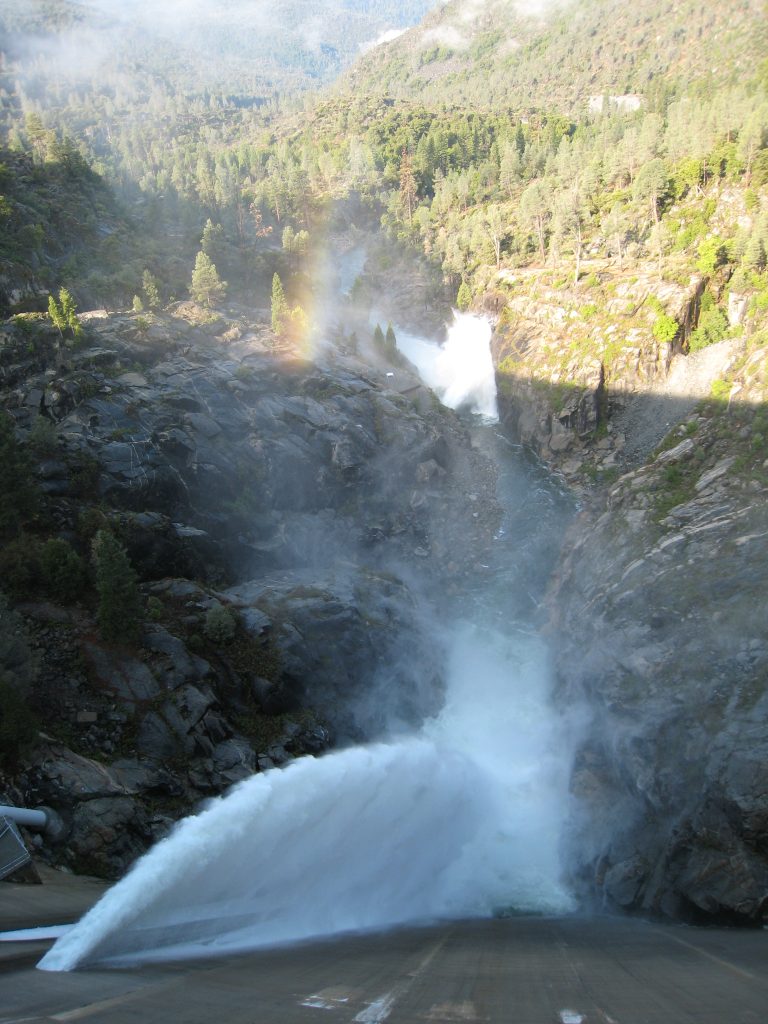San Francisco Officials Agree To Protect Tuolumne River, A Big Win For Salmon
The following press release is courtesy of the Golden State Salmon Association:

San Francisco — On June 8, the SF Board of Supervisors unanimously adopted a resolution by Supervisor Aaron Peskin calling on the San Francisco Public Utilities Commission (SFPUC) to work with the State to protect the Tuolumne River, the source of San Francisco’s water. The resolution was written in response to a lawsuit filed by City Attorney Dennis Herrera challenging the State’s authority to protect the Tuolumne River and others like it. Herrera filed the lawsuit on behalf of the SFPUC.
The resolution reiterates the City’s support for improved protections for the Tuolumne River, the San Joaquin River, critical salmon runs and the San Francisco Bay-Delta estuary.
In 2018 the State Water Resources Control Board (SWRCB) required San Francisco and the other diverters on the Tuolumne to reduce diversions. The SFPUC refused to comply and has since filed two lawsuits against the State. The second suit, filed on May 13, attempts to block the SWRCB’s “401 certification” regarding the Tuolumne River before the Federal Energy Regulatory Commission. That State Board action imposed stronger flow requirements on the Tuolumne River. The SFPUC’s lawsuit relies on an anti-environmental interpretation of federal law implemented by the Trump administration. The Trump rule is designed to block states from requiring the protection of state waters in proceedings before the Federal Energy Regulatory Commission and other federal agencies.
Rather than protect the river and wildlife, the SFPUC has proposed a plan called the Tuolumne River Voluntary Agreement, or TRVA, that locks in damaging status quo diversions virtually unchanged. An independent peer review of the models used by the SFPUC in support of the TRVA found that those models were faulty and did not support the SFPUC’s position. The Board’s resolution calls for the SFPUC to negotiate an agreement with the State Water Board that would actually protect the Tuolumne River, its wildlife and the rivers and Delta downstream. The resolution also discourages additional litigation. The adoption of the resolution represents a major loss for the SFPUC and reiterates the Board of Supervisors support for improved flows in the Tuolumne as ordered by the SWRCB in 2018. The resolution also highlights the devastating impacts to salmon and the Bay from current diversions from the Tuolumne River, which can be higher than 90 percent in some years.
Environmental and fishing community leaders issued the following statements:
“This resolution rejects the SFPUC’s anti-environment actions, endorses higher flows in the river, as called for the State Water Resources Control Board, and calls on the SFPUC to support stronger protections for the Tuolumne and the Bay-Delta – instead of repeatedly suing to block them,” said Bill Martin with the San Francisco Bay Chapter of the Sierra Club. “We all owe Supervisor Peskin a thank you for sticking up for the environment.”
“The SFPUC should be fighting for the Bay, the Tuolumne River and San Francisco’s salmon fishing jobs, instead of fighting against them,” said John McManus, President of the Golden State Salmon Association. “The Supervisors stood up for San Francisco’s environmental values. It’s unbecoming, to say the least, for the SFPUC and City Attorney Herrera to cast their lot with a leftover Trump rule that harms California’s rivers and natural resources.”
“The Supervisors once again rejected the SFPUC’s effort to undermine the State Water Board’s update of the Bay-Delta Plan. The SFPUC should change direction and develop a viable drought plan within the State Water Board’s framework,” said Chris Shutes of California Sportfishing Protection Alliance.
“For too long the SFPUC has neglected its legal responsibility to protect and restore the Tuolumne River. It’s an embarrassment to those of us who drink Hetch Hetchy water that our river is in worse shape than any other in the Central Valley,” said Peter Drekmeier, Policy Director with the Tuolumne River Trust. “The Supervisors’ resolution made it clear that this lack of environmental stewardship is unacceptable.”
Barbara Barrigan-Parrilla of Restore the Delta added, “San Joaquin County is already experiencing toxic algae outbreaks this year caused by inadequate freshwater flows and pollution. SFPUC’s lawsuit is an assault on our environmental justice communities, where toxic algal blooms contribute to poor environmental health conditions. Swimming becomes dangerous for children, and toxic algae worsens our already poor air quality. We are grateful to Supervisor Peskin for his leadership, and all the Supervisors for voting for the resolution. Adequate freshwater flows equal better public health conditions for our disadvantaged communities.”
Resolution Highlights: Noting that the SF Board of Supervisors had expressed unanimous support for the SWRCB’s Bay-Delta plan in 2018, the unanimously passed supervisorial resolution acknowledges that:
o Up to 90% of the Tuolumne’s flows are diverted by the SFPUC and local water districts before they reach the San Joaquin River, causing salmon populations to plummet;
o The SWRCB’s updated water quality standards call for 40% of natural flows to remain in the Tuolumne River during the winter and spring, allowing 60% of river flows to be used by cities and farms;
o The SFPUC has undermined State Board protections for the Tuolumne River and the Bay-Delta and as a result the estuary has continued toward complete ecological collapse;
o The SFPUC unilaterally proceeded with litigation against the SWRCB, despite the unanimously-adopted position of the San Francisco Board of Supervisors supporting the water quality standards adopted by the SWRCB in 2018;
o The SFPUC has filed a second lawsuit challenging the SWRCB’s 2018 standards without holding a single public hearing and without notice to legislative policymakers who had recently and formally weighed in on these issues;
o SFPUC’s recent action coincides with ongoing revelations in a public corruption scandal that have resulted in the resignation of and federal charges against the General Manager of the SFPUC, leaving the SFPUC with interim leadership.



